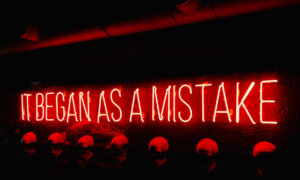Feb. 21, 2017
FACTS
The Supreme Court struck down as unconstitutional the Judicial and Bar Council’s (JBC) procedure of clustering the nominees for every vacancy in the Judiciary.
The ponente for the Decision of that case was Justice Teresita Leonardo-De Castro.
The JBC thereafter filed a Motion for Reconsideration with Motion for the Inhibition of the Ponente.
According to the JBC, she was bias and prejudice against them.
It alleged that Justice Leonarado-De Castro, as consultant of the JBC from 2014 to 2016, had personal knowledge of the voting procedures and format of the short lists, which are the subject matters of the said case.
The JBC then asked why it was only in her Decision in the case did she raise her disagreement with the JBC as to the clustering of nominees.
It also believed that she is hostile towards them and that her hostility might have arisen from the termination of her JBC consultancy.
The JBC quoted portions of the assailed Decision that indicated Justice Leonardo-De Castro’s “already-arrived-at” conclusion as to the alleged ill acts and intentions of the JBC.
Such formed inference, it said, would not set an impartial decision on their Motion for Reconsideration should she continue to participate in the said case.
Justice Leonardo-De Castro denied having personal knowledge in the JBC’s new way of recommending appointments for vacancies in the Judiciary nor did she have any personal interest in the said case.
She likewise contended that there is no basis for her to inhibit since the JBC presented no clear and convincing evidence to prove her bias and prejudice towards it.
ISSUE
Whether or not bias and prejudice must be proven with clear and convincing evidence for the voluntary inhibition of Justice Leonardo-De Castro.
RULING
YES, bias and prejudice must be proven with clear and convincing evidence for voluntary inhibition of Justice Leonardo-De Castro.
Other than the bare allegations of the JBC, there is no clear and convincing evidence of the ponente’s purported bias and prejudice, sufficient to overcome the presumption that she had rendered her assailed ponencia in the regular performance of her official and sacred duty of dispensing justice according to law and evidence and without fear or favor.
In a string of cases, the Supreme Court has said that bias and prejudice, to be considered valid reasons for the voluntary inhibition of judges, must be proved with clear and convincing evidence. Bare allegations of their partiality will not suffice. It cannot be presumed, especially if weighed against the sacred oaths of office of magistrates, requiring them to administer justice fairly and equitably – both to the poor and the rich, the weak and the strong, the lonely and the well-connected.
DISPOSITIVE PORTION
WHEREFORE, premises considered, except for its motion/prayer for intervention, which the Court has now granted, the Motion for Reconsideration (with Motion for the Inhibition of the Ponente) and the Motion for Reconsideration-in-Intervention (Of the Decision dated 29 November 2016) of the Judicial and Bar Council are DENIED for lack of merit.
Nota bene: The Court has agreed not to issue a ruling herein on the separate short lists of nominees submitted by the Judicial and Bar Council to President Rodrigo Roa Duterte for the present vacancies in the Supreme Court resulting from the compulsory retirements of Associate Justices Jose P. Perez and Arturo D. Brion because these were not in issue nor deliberated upon in this case, and in order not to preempt the decision the President may take on the said separate short lists in the exercise of his power to appoint members of the Judiciary under the Constitution.
SO ORDERED.
Full text of this decision.






















